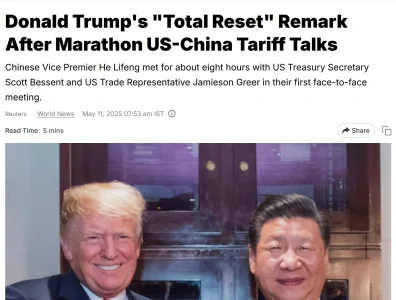Our assessment indicates that Pakistan's conventional warfare capabilities are significantly limited. Specifically, their air defense systems proved inadequate to effectively counter our operations. While we possessed the clear conventional superiority to achieve a decisive military victory, potentially neutralizing their air force by destroying their remaining airbases within hours, we chose a different path.
Our actions, particularly the targeting of three of their airbases, were perceived as having crossed a critical, albeit unstated, red line for Pakistan. The threat of nuclear retaliation from their side was evaluated as genuine and imminent. This assessment is corroborated by the events you referenced – the attempted missile test reportedly aimed at Delhi and other observed seismic data, which we interpreted as indicators of potential nuclear preparations or signaling. Had we not agreed to a ceasefire, it was assessed that they would have escalated to the use of nuclear weapons.
Engaging in a nuclear war serves no rational purpose. A 'victory' in such a conflict would be hollow, as there would be no society left to benefit from it, with the potential loss of life reaching catastrophic levels, estimated at over 1.6 billion people globally.
Given this existential threat, a more strategic approach is to employ limited, punitive conventional actions, demonstrating our capability and imposing costs, but de-escalating through a ceasefire before reaching Pakistan's nuclear threshold. This contained use of force, followed by calculated withdrawal, achieves tactical objectives without triggering a civilization-ending conflict.
Maintaining high-level communication channels, even amidst hostilities, is paramount to prevent miscalculation and ensure the avoidance of nuclear war. We must recognize that their strategic calculus and decision-making processes ('psychology') may differ significantly from our own.
While the decision to implement a ceasefire might be viewed with dissatisfaction in hindsight, potentially sacrificing immediate conventional gains for the sake of public perception or appearing decisive ('optics'), the alternative – a nuclear exchange – would have resulted in unimaginable destruction, leaving nothing left to cherish or regret.
This recent engagement unequivocally demonstrated Pakistan's conventional military inferiority compared to ours. It underscores the critical necessity of avoiding prolonged conventional escalation, which could inadvertently lead to their reliance on nuclear weapons as a last resort. We possess alternative means to counter terrorism and impose costs if their support for such activities continues.
The initiation of nuclear war represents an irreversible step with catastrophic consequences; there is no 'going back' once the nuclear button is pressed. Therefore, any future military planning, especially concerning conventional strikes, must carefully factor in Pakistan's limited conventional capacity and their potential reliance on nuclear deterrence. Ultimately, preventing nuclear war is the overriding imperative, outweighing considerations of short-term optics or the complete annihilation of their conventional forces.







